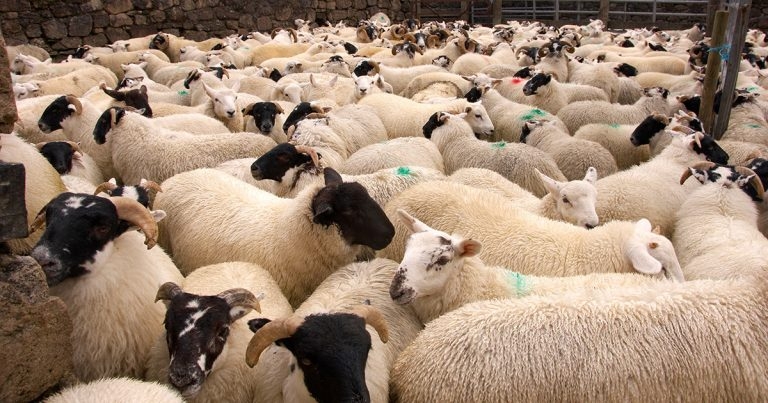31 Jan 2025
A vet and researcher has backed farmers’ calls for an “urgent” and co-ordinated approach to reducing disease levels.

Image © Louise McGilviray / Adobe Stock
A study has called for the rapid development of a new national strategy to tackle sheep scab among flocks in Northern Ireland.
Researchers say the idea enjoyed the unanimous support of farmers who responded to a survey on the issue, as part of their analysis of detection and potential barriers to tackling the disease.
Vet and research lead Paul Crawford said the project demonstrated that farmers recognised both the need for a co-ordinated approach to the problem and for them to get behind new efforts to address it.
He said: “Further facilitation of farmer-driven scab control activities are urgently required to get a handle on this situation.
“This research and our findings are just the tip of the iceberg in understanding the scale of the disease and the impact the frequent failure to cure scab identified among our farms will be having on increasing scab dissemination through the national flock.”
The paper, published in Veterinary Record, reported scab was confirmed in 60 out of 105 flocks that were visited, a level that was said to be “substantially higher” than levels identified through official channels.
Almost three-quarters (77) of the flocks were supplied with dip for either treatment or prevention purposes, while the analysis also suggested that only four out of 16 flocks treated with injectable products were shown to be cured of the disease as a result.
The study further reported that, in a follow-up survey of farmers, all 52 participants supported the idea of a dedicated national scab control programme, while 81% indicated they would be prepared to co-ordinate future treatments with their neighbours.
It added: “For long-term control of scab, there will be a need for local, or targeted, sharing of flock scab status data to ensure that all at-risk flocks are investigated and treated.
“Delays between reporting suspicion, diagnosis and treatment, the use of inappropriate treatments and treatment failures combine to increase the risk of dissemination of P ovis between and within flocks through animal movements.
“It is the energy and unanimity of farmers in their call for further, national control that is critical to future success and should urgently be supported.”
DAERA has been approached for comment.